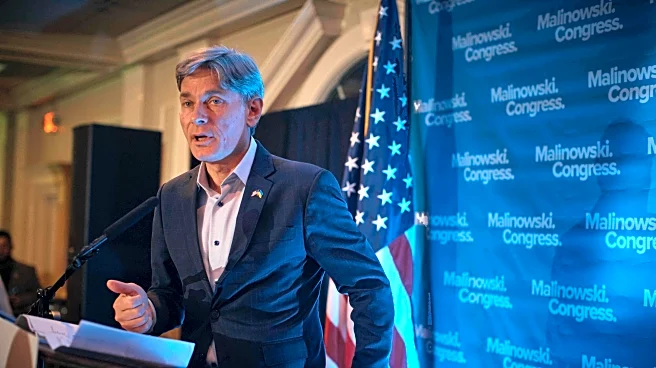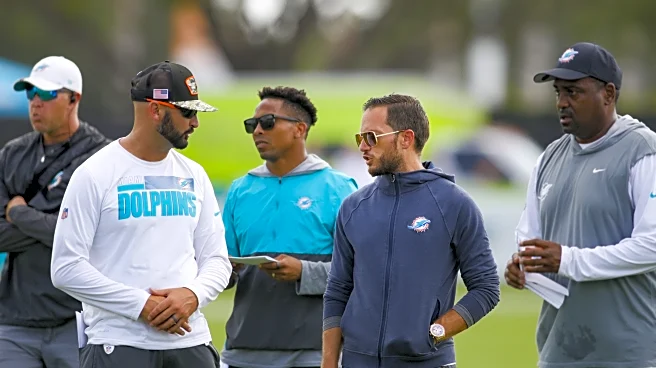What's Happening?
First Lady Melania Trump announced that Russian President Vladimir Putin responded to her letter concerning Ukrainian children affected by the Russia-Ukraine war. The letter, delivered during Putin's visit to Alaska in August, urged the protection of children displaced by the conflict. Melania Trump revealed that eight children have been reunited with their families, facilitated by both Ukraine and Russia. The First Lady emphasized the turmoil these children faced due to the war and highlighted the importance of their reunification. Her advocacy for children aligns with her BE BEST initiative, which focuses on global child well-being.
Why It's Important?
The reunification of Ukrainian children with their families represents a significant humanitarian achievement amidst ongoing geopolitical tensions. Melania Trump's initiative underscores the role of diplomacy in addressing humanitarian issues, potentially easing relations between the U.S., Russia, and Ukraine. This development may influence public policy regarding child welfare and international cooperation. The First Lady's efforts highlight the importance of advocacy in achieving tangible outcomes for vulnerable populations, potentially inspiring further diplomatic engagements to address similar crises.
What's Next?
The successful reunification may lead to further diplomatic efforts to address the humanitarian impacts of the Russia-Ukraine conflict. Stakeholders, including international organizations and governments, might explore additional avenues for cooperation to protect displaced children. The U.S. government could leverage this development to strengthen diplomatic ties and advocate for broader humanitarian initiatives. Continued monitoring and support for affected families will be crucial in ensuring long-term stability and well-being for the children involved.
Beyond the Headlines
Melania Trump's advocacy highlights the ethical responsibility of global leaders to prioritize humanitarian issues, even amidst political conflicts. The initiative may prompt discussions on the role of First Ladies in international diplomacy and child welfare advocacy. This development could influence cultural perceptions of leadership and humanitarianism, encouraging more proactive engagement in global crises.











